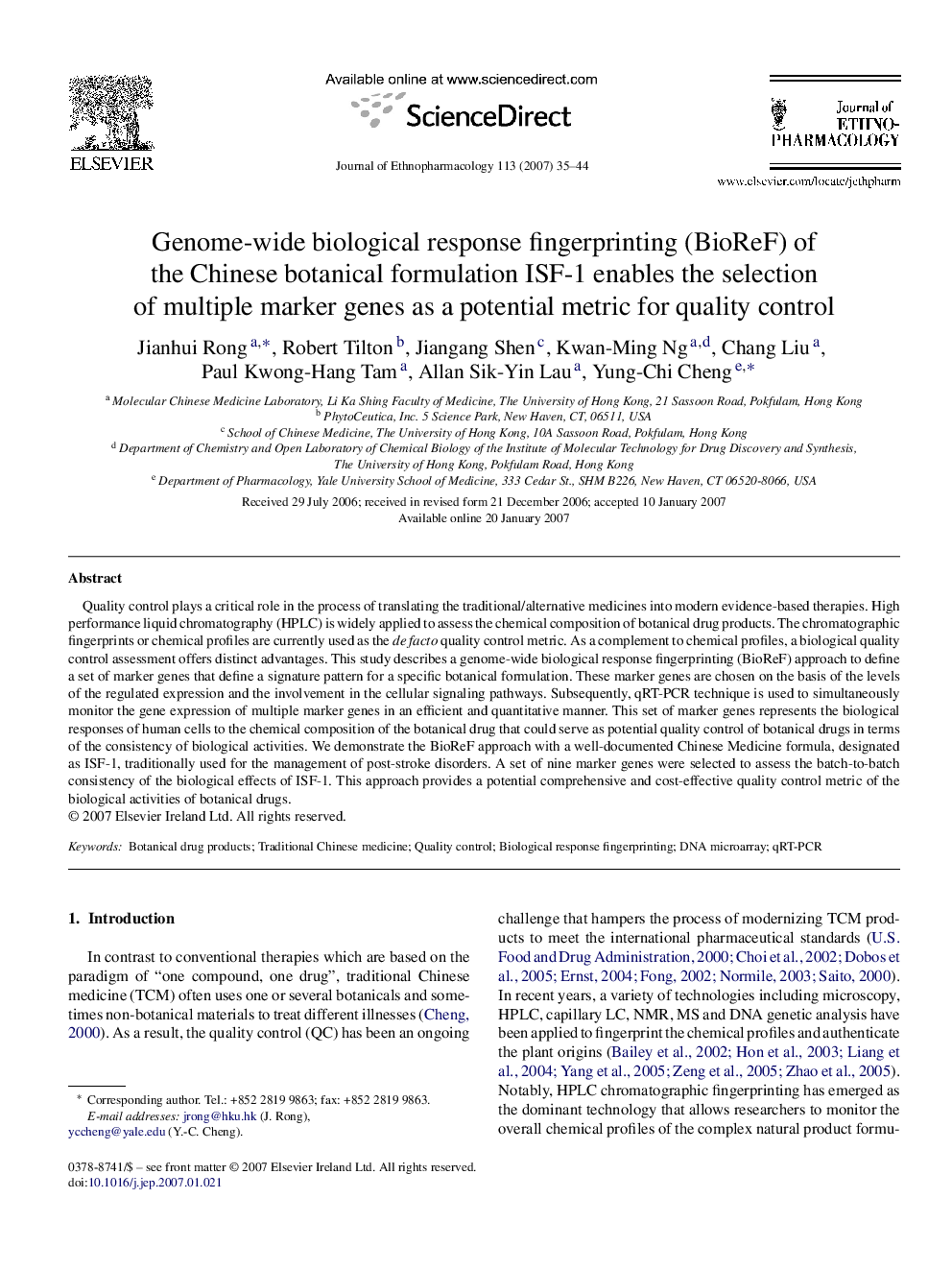| Article ID | Journal | Published Year | Pages | File Type |
|---|---|---|---|---|
| 2548130 | Journal of Ethnopharmacology | 2007 | 10 Pages |
Quality control plays a critical role in the process of translating the traditional/alternative medicines into modern evidence-based therapies. High performance liquid chromatography (HPLC) is widely applied to assess the chemical composition of botanical drug products. The chromatographic fingerprints or chemical profiles are currently used as the de facto quality control metric. As a complement to chemical profiles, a biological quality control assessment offers distinct advantages. This study describes a genome-wide biological response fingerprinting (BioReF) approach to define a set of marker genes that define a signature pattern for a specific botanical formulation. These marker genes are chosen on the basis of the levels of the regulated expression and the involvement in the cellular signaling pathways. Subsequently, qRT-PCR technique is used to simultaneously monitor the gene expression of multiple marker genes in an efficient and quantitative manner. This set of marker genes represents the biological responses of human cells to the chemical composition of the botanical drug that could serve as potential quality control of botanical drugs in terms of the consistency of biological activities. We demonstrate the BioReF approach with a well-documented Chinese Medicine formula, designated as ISF-1, traditionally used for the management of post-stroke disorders. A set of nine marker genes were selected to assess the batch-to-batch consistency of the biological effects of ISF-1. This approach provides a potential comprehensive and cost-effective quality control metric of the biological activities of botanical drugs.
